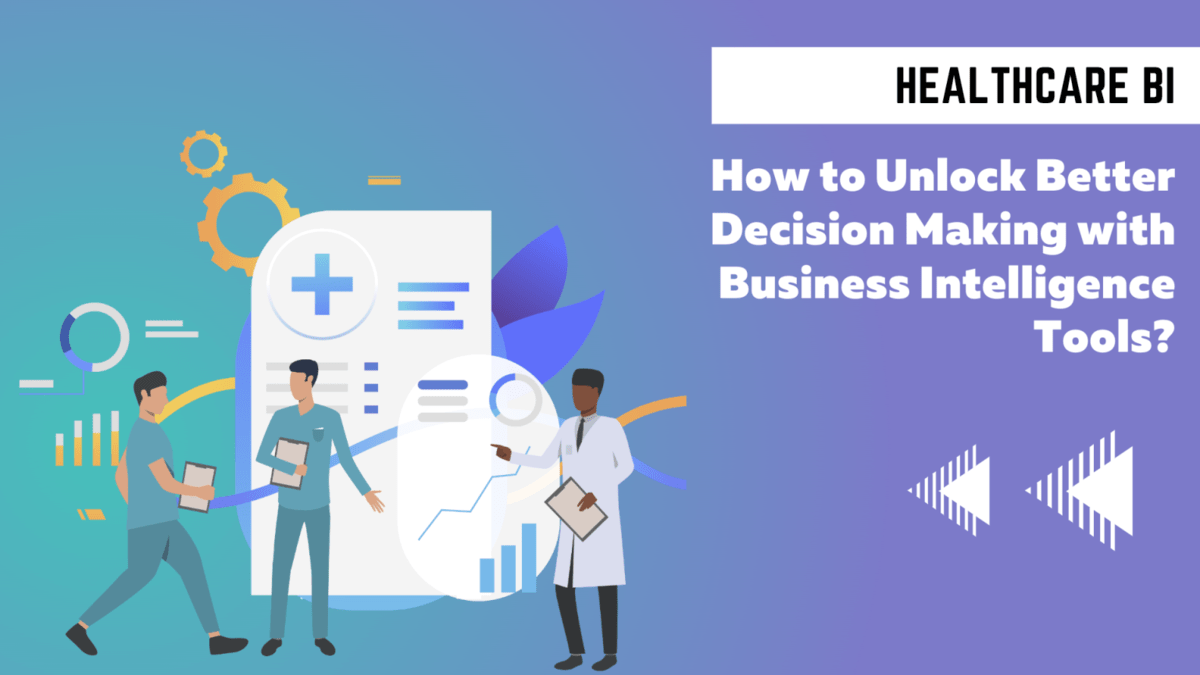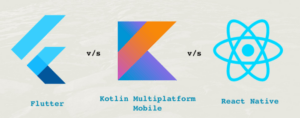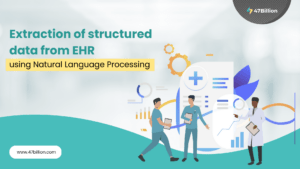A Globe Newswire report by Data Bridge Market Research indicates that the Healthcare business intelligence (BI) market will grow at a CAGR of 14.55% during 2022-2029.
The “On-premise model” accounts for the largest deployment segment in the Healthcare BI market. They leverage this private cloud model to facilitate the collaboration of Healthcare and digitization. This results in –
- Improved patient safety
- Minimized costs
- Increased revenue earning
- Improves clinical performance
- Better patient outcomes
- Enhances financial and operational outcomes
Data is revolutionizing all industries! The Healthcare industry is rapidly adopting cloud-based Business Intelligence tools. The BI tools use medical software to safely and electronically gather, standardize, and manage patient information to improve patient care and decision-making. Business intelligence solutions provide insights in real-time and are more accessible.
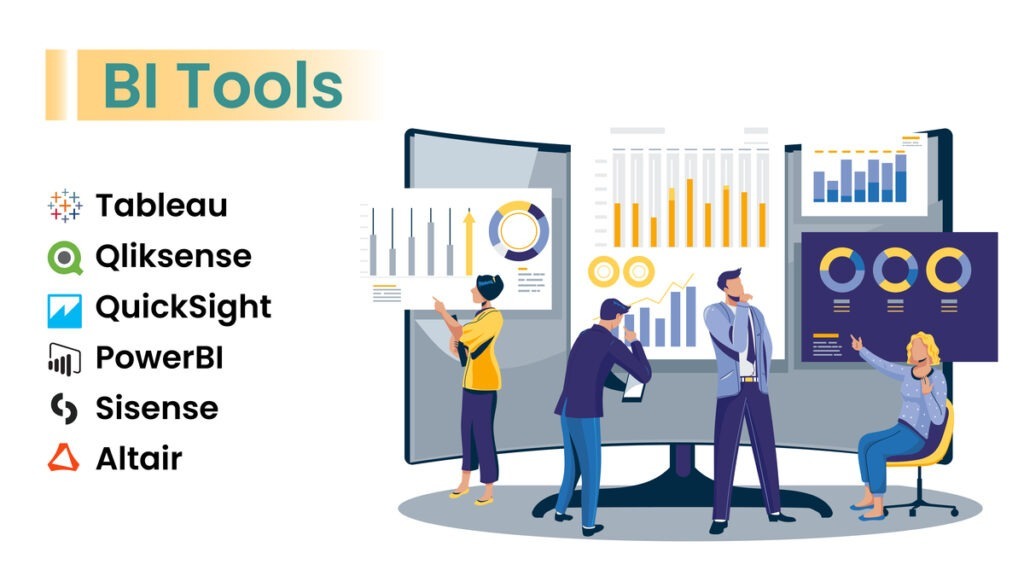
How does Business Intelligence enable better decision-making in the healthcare domain?
Tools, techniques, and technology used in business intelligence assist in turning unstructured raw data into informative data for the Healthcare industry. This helps by
- Enabling insights
- Identifying trends and patterns
- Comprehend customer behavior
- Presents crucial information in the form of reports
- Splits the data into several formats and shapes
The federal government and public stakeholders have also accelerated the move toward data transparency. They are making efforts to make the stored data usable, searchable, and actionable by the Healthcare sector.
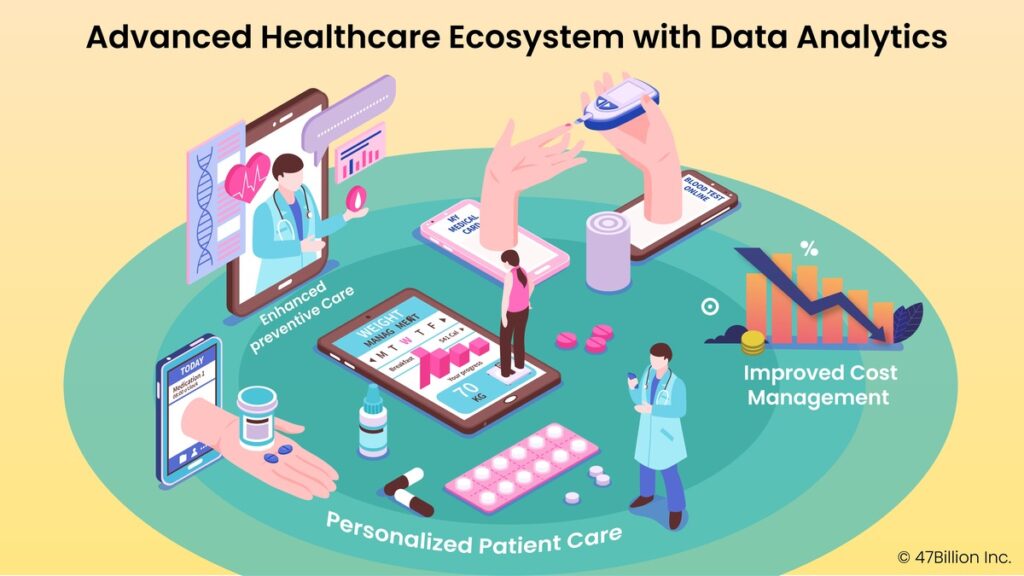
Industry experts, as well as Healthcare payers and providers, are analyzing big data to obtain insights. Here is how the Healthcare industry is utilizing BI tools to make better decisions –
1. Personalized Patient Care
BI helps revolutionize patient care systems to benefit patients and the Healthcare industry. The data generated by Healthcare devices gather different information about their health parameters – heart rate, blood pressure, sugar levels, TSH, etc. This data is made available to Healthcare providers for centralized storage and access. The BI applications utilize the available information and help monitor and treat patients proactively per the requirement.
Based on family and medical history, BI tools can help provide personalized Healthcare. This eliminates the need for unnecessary repetition of various clinical tests.
For instance, a critical patient’s treatment needs a collaborated decision that various departments drive and insights from centralized BI tools can help. They help Healthcare providers make faster decisions to provide timely and elevated care. Similarly, when there are multiple lines of treatment for a single patient, comprehensive patient records of family records, treatment plans, and patient history can help Healthcare providers with immediate reference and treatment procedures.
2. Enhanced Preventive Care
BI tools can predict risk by accessing the patient’s historical data. Predictive analytics help in pre-planning treatment routines for significant health challenges. This, in turn, helps prevent certain diseases, specifically genetic and lifestyle diseases. In such scenarios, Healthcare providers can make informed decisions and interventions, resulting in effective and timely treatment.
Predictive analytics helps in understanding the risk of recurrence and devising dynamic plans that help prevent challenges during disease recurrence.
Read the complete use case here Hedis Audit Management ICD Engine
3. Resource Management
Tracking systems and real-time dashboards to understand patient inflow and manage end-to-end logistics. BI tools use patient inflow data from hospitals to ensure optimal infrastructure utilization.
4. Waste Management
BI tools can help optimize processes and reduce wastage through real-time insights.
5. Data-driven Decisions with Enterprise Data Warehouse
EDW helps collect the complete data associated with Healthcare practices, such as clinical, patient-related, administrative, and financials, into one silo. This encourages easy and error-free financial decisions.
6. Enhanced Processes
Business intelligence tools help Healthcare organizations break down workflows to effectively utilize business process automation solutions.
7. Fraud Detection
Another application is for insurance companies when they can use BI tools to monitor and detect fraudulent activities such as fake claims to ensure a faster claims process for patients and hospitals, thus enabling a better overall experience for all stakeholders.
Business Intelligence is completely changing the existing landscape of healthcare!
Applications of BI in Healthcare include storing the most diverse information linked to the institution and creating qualitative and quantitative databases.
Business Intelligence tools can process and analyze this data from various perspectives. In addition to creating indicators and macro analysis by crossing information, BI can assertively direct tactical and strategic decision-making. Thus, impacting the quality of healthcare operations directly. BI in Healthcare brings people, news, and departments together, providing strategic KPIs for informed decisions. BI tools can help analyze shortcomings and eliminate errors through timely actions to achieve better results.
47Billion is a team of experienced strategists, data analysts, data engineers, visualization experts, data scientists, and machine learning experts. We work from data extraction to visualization. Also, healthcare offerings at 47Billion are spanned across consumer- and business-focused aspects that are strongly wired with industry standards and compliance. Are you looking for a robust data analytics implementation strategy for your organization? Let’s connect!

